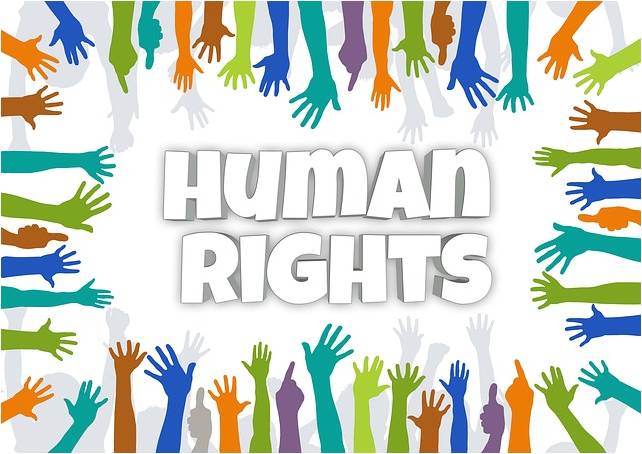Back to: CIVIC EDUCATION SS3
Welcome to class!
In today’s class, we will be talking about human right. Enjoy the class!
Human Right

Human rights are basic or fundamental rights that citizens of a country must enjoy. These rights are usually written in the country’s constitution.
Examples of human rights are right to life, right to freedom of speech, right to freedom of movement, right to a fair hearing, right to vote and be voted for, right to freedom of religion etc.
All these rights can further be grouped into the following types;
Social and economic rights
- Right to life and security
- Right to privacy
- Right to education
- Right to peaceful assembly and association
- Right to freedom from oppression
- Right to work and earn a living
- Right to favourable conditions of work (e.g. workers should not be sacked unjustly)
Political rights
- Right to vote and be voted for
- Right to join any political party of one’s choice
Legal rights
- Right to a fair hearing
- Right to family life
- Equality before the law
- Right to personal liberty
Civil rights
- Freedom of movement
- Freedom of religion
- Right to own property
Evaluation
- What is a human right?
- Highlight the characteristics of human rights.
Nationalism
Nationalism is the desire to work for the freedom of one’s community and country from political, socio-cultural and economic oppression by other people or country. It is also the struggle against oppression, economic domination, foreign rule and colonization.
Nationalist are leaders who strive for the unity and independence of Nigeria.
Evaluation
Define nationalism
Roles of nationalist leaders in the nation building
- They helped to ensure that Nigeria got its independence from British rule.
- They helped in the training of future leaders.
- Their activities led to the educational development of Nigeria. For example, the establishment of the University of Ibadan and Yaba College of Technology.
- They enhanced political freedom and self- government in Nigeria.
- They encouraged the participation of people in politics.
- They helped in the formation of political parties e.g. NNDP, NCNC, AG, NPC etc.
- They contributed to the growth and development of Nigeria.
Examples of nationalist leaders in Nigeria are Herbert Macaulay, Nnamdi Azikiwe, Obafemi Awolowo, Ahmadu Bello, Tafawa Balewa, Shehu Shagari etc. the pictures of most of these leaders are found on Nigerian currencies.
General evaluation
- Define nationalism.
- Explain the roles of nationalist leaders in nation building.
- Mention three nationalist leaders in Nigeria.
- What are the contributions of nationalist leaders in the country?
- Mention three institutes of a public corporation.
Reading assignment
Read on Nationalism and Roles of Nationalist Leaders in Fundamentals of Civic Education for Senior Secondary School by Sola Akinyemi
Theory
- Define nationalism.
- State four benefits of nationalism.
We hope you enjoyed the class.
Should you have any further question, feel free to ask in the comment section below and trust us to respond as soon as possible.
